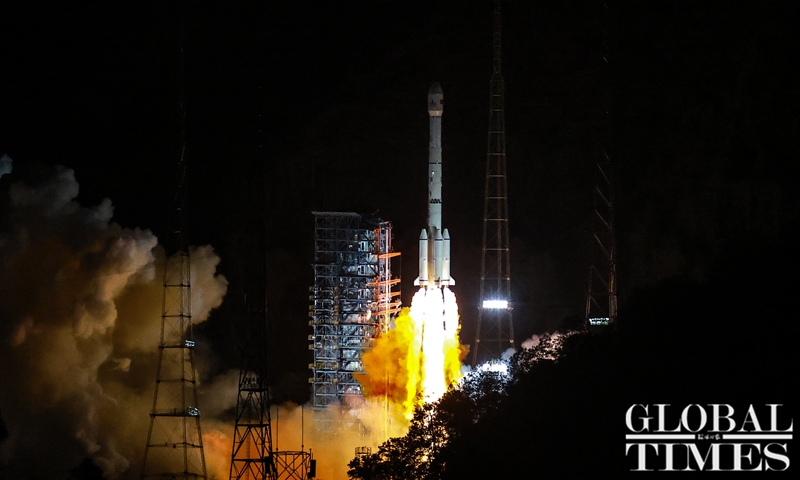
Carrying the Tianwen-2 asteroid probe, China’s Long March-3B carrier rocket takes off from the Xichang Satellite Launch Center in Southwest China’s Sichuan Province on early Thursday morning. Photo: Deng Xiaoci/GTAmjad Ali, deputy director general of SUPARCO, Pakistan’s national space agency, in an exclusive interview with Global Times on Thursday, hailed that we see Tianwen-2 not just as a national success for China, but as a meaningful contribution to global scientific progress. Space exploration is a shared human pursuit – one that thrives on collaboration and collective ambition.
“On behalf of the SUPARCO, we extend our heartfelt congratulations to the CNSA and all those contributing to the Tianwen-2 mission. This bold and visionary endeavor – to collect samples from near-Earth asteroid and study main-belt comet – marks another milestone in humanity’s journey to understand the origins and evolution of our solar system,” Ali said.
Ali applauded that Tianwen-2 promises to deliver invaluable scientific insights. Asteroids and comets are time capsules of the early solar system, holding clues about planetary formation, the distribution of extraterrestrial resources, and even the origins of life. The mission’s complex trajectory, advanced sampling technology, and high-speed return to Earth speak volumes about CNSA’s technical prowess and China’s growing leadership in deep space exploration.
We look forward to the mission’s success and the groundbreaking discoveries it is poised to deliver, the SUPARCO senior official said, while emphasizing that the Pakistani agency remains committed to deepening its collaboration with CNSA and other global partners as we collectively push the boundaries of what is possible in space.
Speaking to the Global Times, Ali said that our ongoing cooperation with CNSA, including contributions to Chang’e-6 via the ICUBE-Q cubesat and the development of a lunar rover for Chang’e-8, highlights a shared commitment to peaceful space exploration and scientific discovery. These partnerships demonstrate how pooling knowledge and resources can yield powerful results in tackling the many challenges of space.
Reference Link:- https://www.globaltimes.cn/page/202505/1335060.shtml

